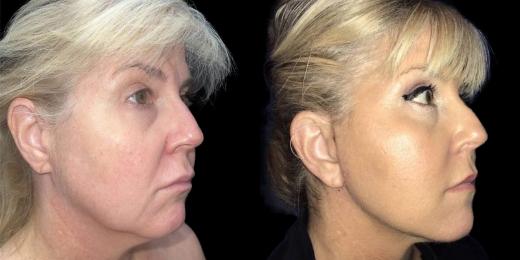In today’s world, image is everything. With advancements in plastic surgery constantly improving and emerging, it’s now easier – and more discreet—than ever to correct areas of your body you may not be happy with. One of the biggest trends in plastic surgery today is male breast reduction for the treatment of Gynecomastia – an issue that many men face and are now taking corrective measures to improve. Gynecomastia can cause a lot of embarrassment for men who experience it, and it’s shockingly common. But the good news is it’s treatable.
Contents
What is Gynecomastia
Simply stated, Gynecomastia is an enlargement or swelling of breast tissue in males. It can affect one, or both breasts, and happens when the balance of two hormones in the body is thrown off. Although breasts don’t develop in men the way they do in women, all males are born with a small amount of breast tissue.
The two naturally occurring hormones in males and females are testosterone and estrogen. Males naturally produce more testosterone in their bodies during their developmental growth stages, but still produce some estrogen. Sometimes, during different stages of a male’s developmental growth stages—usually in adolescence and later on in adulthood, these hormone levels can become imbalanced and their bodies will begin to produce more estrogen than it should which can cause their breast tissue to swell. About half of adolescent boys and as many of two-thirds of men older than 50 will experience this hormonal imbalance to some degree, which will cause them to suffer from Gynecomastia.
The effects of Gynecomastia are not life-threatening, but studies suggest that if left untreated, Gynecomastia can cause depression, anxiety, reduced self-esteem and can even lead to eating disorders and body dysmorphia.
What causes Gynecomastia?
There are many factors that can contribute to Gynecomastia, and it isn’t always easy to identify the exact cause. Medications prescribed for various illnesses such as depression, heart disease, and ulcers are common contributors to hormonal imbalances within the male body, as well as commonly occurring Thyroid problems since hormones from that glad control growth and sexual development.
Initial signs of Gynecomastia are usually indicated by a lump of fatty tissue under the nipple, which can sometimes feel tender or sore to the touch. Over time, men who suffer from Gynecomastia will notice swelling of the tissue above their pectoral muscles, which can sometimes happen unevenly, with one becoming larger than the other.
Will it go away with exercise?
Exercise will not diminish Gynecomastia, and can sometimes make the problem appear worse. While cardiovascular exercise and eating a healthy diet can help you lose overall body fat, the chest is one of the last places your body will show appreciable fat loss. Additionally, the excess tissue that is caused by the hormonal imbalance will remain, even if significant weight loss does occur. Exercising the chest specifically will often accentuate the problem, because as the pectoral muscles grow larger, the gland will be pushed out.
What can you do to get rid of Gynecomastia?
The most effective method of treating Gynecomastia is to have a surgical procedure to remove excess tissue in the breast. Male breast reduction will remove excess fat and glandular tissue from the chest, and can help men suffering from Gynecomastia regain confidence by making the chest appear flatter and more contoured. Candidates for male breast reduction surgery are those who suffer from Gynecomastia, are in good over-all health, who are not taking anabolic steroids or using drugs recreationally. Because Gynecomastia can sometimes be caused by taking medications used to treat certain medical conditions, adjusting the dosages of a certain medication may be necessary.
Gynecomastia doesn’t have to be a life-long concern. If you are suffering from unsightly and unwanted excess issue on your chest, schedule an appointment with one of the nation’s leading plastic surgeons, Dr. Stephen Greenberg, who is an expert in the field of male breast reduction surgery, and can give you back the confidence once lost from living with Gynecomastia.



